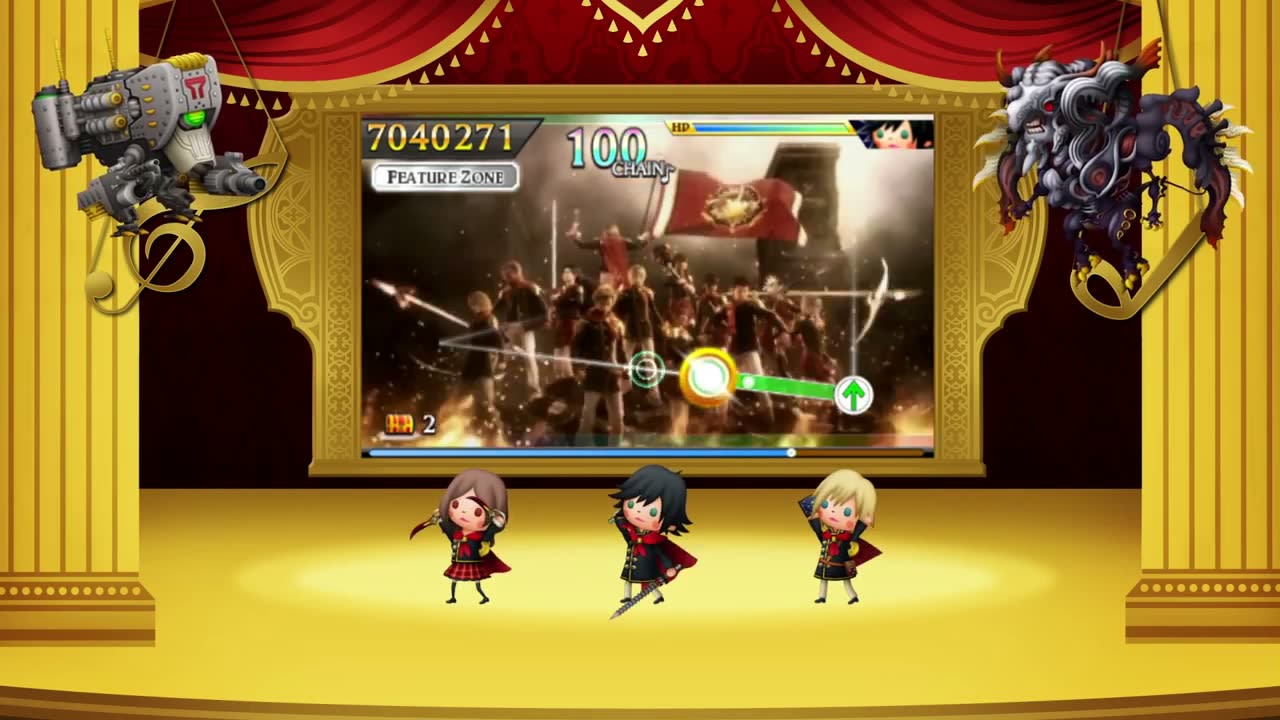
Like its predecessor, Theatrhythm Final Fantasy: Curtain Call is a touch screen-based rhythm game featuring the game’s best music from various Final Fantasy titles throughout the years. The release of Theatrhythm‘s follow up, Theatrhythm Final Fantasy: Curtain Call, probably came as a bit of a surprise, but it’s a pretty pleasant surprise at that. The franchise celebrated its 25th anniversary a couple years ago with the release of Theatrhythm: Final Fantasy, which was sort of a tribute to the franchise’s great music while also featuring intuitive gameplay similar to the cult GBA hit, Elite Beat Agents. sessions of motoring through Final Fantasy games and working afternoons with tracks from Final Fantasy 10 or Final Fantasy 13 playing in the background.The wildly popular Final Fantasy franchise has been in existence for almost 27 years now, and while anybody can say whatever they want regarding the quality of the many games bearing the name, its music has always been widely appreciated. With its expertly pieced together soundtrack, Curtain Call became a haven for the memories I have of the series, all those three a.m.
#Final fantasy curtain call song series#
The whole series is given a chance to shine. Curtain Call has a generous library of songs - over 200! - spanning both main-line Final Fantasy games and spin-offs like Final Fantasy Tactics, Final Fantasy X-2, Chocobo Dungeon and the Dissidia games. That purpose, of course, is a celebration of the beloved music of the Final Fantasy franchise. The new tricks in Versus Mode seemed designed to make me fail, and they distracted from the real purpose of Theatrhythm. I spent the least amount of time in this mode because struggling against these opponents yielded no worthwhile rewards - no items or unlocks of significance. Against AI opponents in the harder challenges, this is brutal sabotages become more common, sometimes triggering back to back. Sabotages include speeding up the display or causing arrow triggers to spin - generally anything that can make commands harder to read, ruin chains and drag down scores. When you successfully chain notes together in Versus Mode, you're rewarded by inflicting a randomly selected sabotage on your opponent. Versus Mode offers the one thing I feel Theatrhythm didn't need in terms of making content challenging: sabotages. In Versus Mode, opponents - either AI-controlled or other players via online or local Wi-Fi - go through one song side by side, with the highest score determining the winner.

Quest Medleys often bored me, but only one part of Curtain Call actively infuriated me: Versus Mode. I took these shortcuts every chance I could get Medleys came off more like chores necessary for unlocking the good stuff that I was actually interested in. Curtain Call thankfully includes special items that allowed me to skip some songs and do the bare minimum of work to reach the final boss. Certain songs show up way too often when "The Price of Freedom" from Crisis Core: Final Fantasy 7 came up three or four times in one quest, I got bored. While the rewards can be nice, Quest Medleys became monotonous quickly. These challenging opponents guard rare items that can unlock new characters and stages. Some maps are longer and include a miniboss or two along the way, but all of them end with a final boss. These are strings of randomly-chosen songs chained together and placed on points on a map. When I grew tired of tapping through tracklists, I tried Quest Medleys.

Having so many options to grow my character added to the sense of accomplishment when I finished melodies.

This additional layer of strategy made Curtain Call feel like more like an RPG rather than just a rhythm game. I loaded up Celes from Final Fantasy 6 with healing abilities that slowly regenerated health and prevented me from outright losing harder songs, while I kept Vivi and Eiko from Final Fantasy 9 stocked with magic abilities that blasted bosses when their HP got low. These abilities have a meaningful impact on gameplay. Heroes also learn new abilities with rare scroll items or naturally through levelling up.


 0 kommentar(er)
0 kommentar(er)
